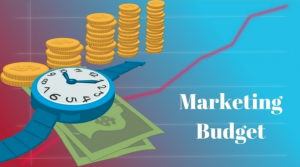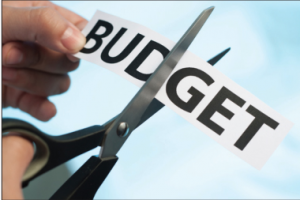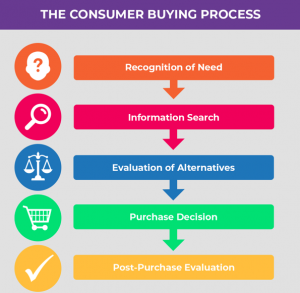 Let’s start with first things…..FIRST:
Let’s start with first things…..FIRST:
An expense is something you buy and depreciate over time. … While many treat marketing as an expense, it’s an investment in the success and future of your business. An investment is an asset or item that is purchased with the hope that it will generate income or appreciate in the future.
That’s what today’s marketing is intended to do, create wealth. Digital marketing helps you create an active pipeline of leads, a percentage of which will ultimately convert into customers and clients.
The sky is falling, what now?
When times are tough, what’s the first thing that goes? The marketing budget. That’s like cutting off the hand that holds your wallet. If marketing brings in customers and you cut that out, how are you going to get new customers and generate revenue?

During the Great Depression, companies such as Kellogg beat out their competitors by marketing aggressively while their rivals cut back. Advertising was the major factor in the growth or decline of a company during those tough times. Consider Proctor & Gamble, which maintains a philosophy of not reducing marketing budgets during a recession; the company has made progress during every recession.
Marketing is about lead nurturing
The most important distinction in today’s marketing versus yesterday’s is the value it offers your target audience. Traditional marketing’s job was to capture attention and tell you about something. One of the most basic principles of digital content marketing is to educate – not to sell. This concept may seem counterproductive to selling but it’s a proven sales technique!
How today’s consumer shops
 Think about how you shop and how different it is from how you used to shop. Do you call and ask for a company to drop a brochure in the mail? Did you start by researching a product on the Internet? Did you look up price ranges, make comparisons, look up reviews and more?
Think about how you shop and how different it is from how you used to shop. Do you call and ask for a company to drop a brochure in the mail? Did you start by researching a product on the Internet? Did you look up price ranges, make comparisons, look up reviews and more?
In fact, 57-70 percent of the decision making process has already happened by the time a customer or client contacts a company. That is an important distinction between yesterday’s marketing and today’s. Consumers are seeking information and educating themselves prior to making a purchase. How can you capitalize on this trend and get more closed leads, improving the ROI of your marketing investment?
Marketing isn’t an expense, it’s an investment in the company. From product and package design to how many words are on the front page of your website, everything that communicates with the customer is a marketing decision, and therefore an investment in your business’ future. Marketing is not an expense the way a box of pens or internet service is an expense. Every social media profile, radio ad, or tweet directly impacts your business’ bottom line. If these things (or any marketing initiative) have the power to sell a product or service, and we know for a fact they do, then failing to utilize them properly, or at all, is business suicide.
When you spend money on any marketing or advertising initiative, there will be a return on that investment (ROI). Ideally, the ROI will be a number greater than the original investment, but not always. Unlike other parts of a business, marketing “investments” aren’t always going to pay off in a way that makes immediate sense to someone unfamiliar with building comprehensive marketing strategies. For example, building an amazing website is almost always a good investment for a business, but the ROI of that website can be negative if other issues aren’t attended to or factored in accurately. It might have been a great investment in theory, but if it’s ignored or the product you’re selling is bad, it won’t matter.
Websites, or any marketing initiative, must be looked at as an investment in your company’s future. These actions are a bigger part of a more complex whole. There won’t be a great ROI on a website or social media strategy if the other components of the marketing plan aren’t in place. There also won’t be growth in your business if you don’t pay attention to these things, regardless of whether you want to or not. Ultimately, somebody will pay attention, and they’ll understand a comprehensive marketing strategy is a complex flow of information from business to customer and back again. ROI is fantastic for measuring individual campaigns within the greater whole, but if expense is what you’re focused on, marketing will always be scary or frustrating.
It doesn’t have to be. Allow yourself to see marketing as a direct investment from which strong bottom lines flow. Conversely, bad marketing chokes off the flow of strong sales, allowing competitors and substitute products to cut off a chunk of pie originally meant for you. Marketing is the science of investing in your business and your products for the long-term. Focus on thinking of marketing as an investment, but don’t focus obsessively on early ROI. Instead, establish key-performance-indicators whereby you know the plan is on track and things are progressing the way you and your agency had planned. The money might not be flowing yet, but the investment is paying off. Keep building the plan, much the way you’d build a house. If done correctly, the sum will end up greater than the parts. Like anything in life, you simply must invest wisely.

 317-289-4965
317-289-4965